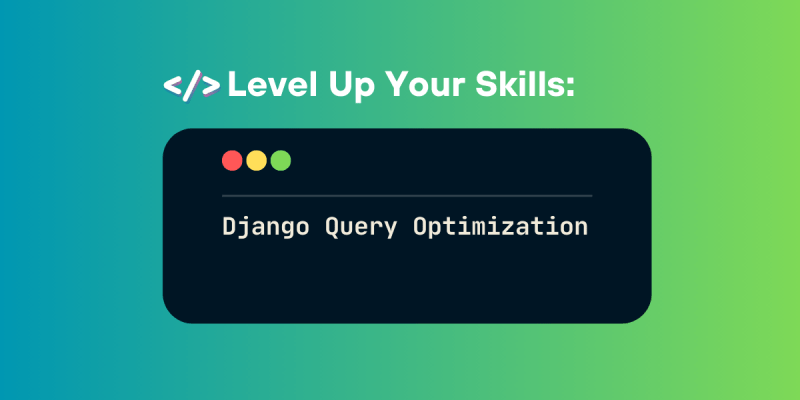In the world of Django development, ensuring your application performs at its best is a top priority for every developer. As Django projects become more intricate, the effectiveness of database queries becomes increasingly crucial. In this thorough guide, we’ll explore mastering Django query optimization techniques to level up your skills and ensure that your application remains responsive even when faced with heavy usage.
Understanding Django Query Optimization
Improving database queries in Django requires refining the efficiency of database operations to shorten response times and minimize resource usage. By comprehending the nuances of Django query execution, developers can effectively identify and address performance bottlenecks, thereby optimizing the performance of their applications.
Profiling Your Django Application
Profiling plays a crucial role in uncovering performance issues within a Django application. By profiling your Django application, you can accurately identify areas where query optimization is most necessary. Let’s explore a practical illustration of profiling using Django’s integrated debugging toolbar:
With the debugging toolbar activated, you can analyze the number of queries executed, and their execution duration, and identify potential optimization prospects.
Database Indexing Strategies
Database indexing is fundamental for enhancing query performance in Django applications. By strategically creating indexes on columns frequently used in queries, developers can greatly reduce query execution times. Let’s explore a typical indexing scenario using Django’s model field options:
In this example, we create an index on the ‘name’ column of the Product model to improve search performance, thereby contributing to overall Django query optimization.
Queryset Optimization Techniques
Django’s QuerySet API provides numerous optimization methods to refine database queries. By utilizing these techniques, developers can reduce database queries and improve the responsiveness of their applications. Let’s take a look at some typical optimization approaches:
Prefetch Related
Prefetching related objects in advance allows us to avoid extra database queries when accessing related information.
Select Related
Select related retrieves related objects in a single query, mitigating database round trips.
Caching Strategies
Caching is vital for enhancing the performance of Django applications. By storing commonly accessed data in cache, developers can lighten the workload on the database and enhance the application’s overall speed. Let’s examine a caching example using Django’s built-in caching framework:
By caching the outcomes of a queryset, we can supply users with cached data without having to constantly query the database.
For more advanced caching techniques and solutions to common issues, check out our post on Fix Redis Performance Issues: 5 Plus Powerful Tips. This guide offers insights into optimizing Redis, a popular caching tool, to ensure your application runs smoothly.
Advanced Optimization Techniques
Beyond basic optimization strategies, Django provides advanced techniques for enhancing query performance. Let’s explore these advanced optimization methods:
Query Batching
Batching queries through annotating and aggregating enables us to optimize database performance for complex operations.
Lazy Loading
Lazy loading defers the retrieval of related objects until they are explicitly accessed, reducing unnecessary database queries.
Testing and Benchmarking
Testing and benchmarking are essential parts of the query optimization process. By testing and benchmarking optimized queries, developers can confirm performance improvements and identify any potential issues. Let’s consider an example of benchmarking using Django’s built-in testing framework:
By measuring query performance within test cases, developers can ensure that their optimization efforts produce measurable results.
Real-world Examples and Case Studies
To demonstrate the effectiveness of Django query optimization techniques, let’s examine real-world instances and case studies of applications that have benefited from optimization strategies.
Conclusion
To sum up, mastering Django query optimization techniques is crucial for sustaining optimal performance and scalability in Django applications. By understanding the underlying mechanisms of query execution and implementing advanced optimization strategies, developers can guarantee that their applications operate efficiently even under heavy loads.




